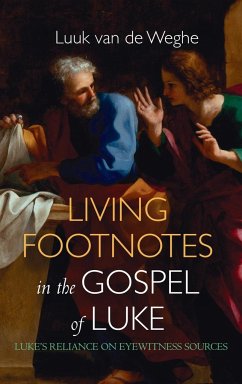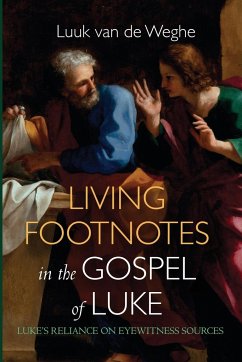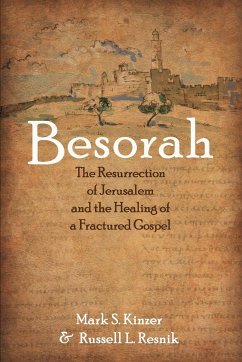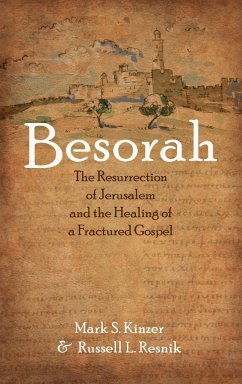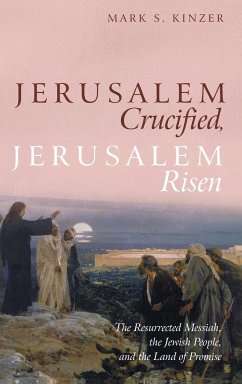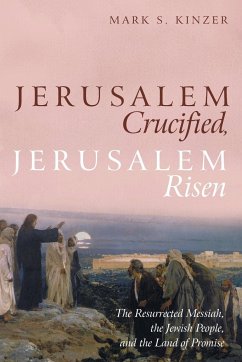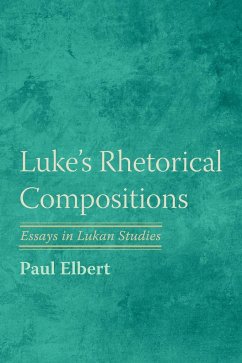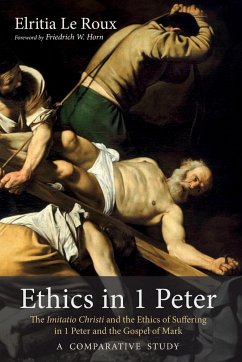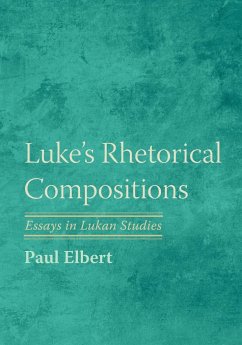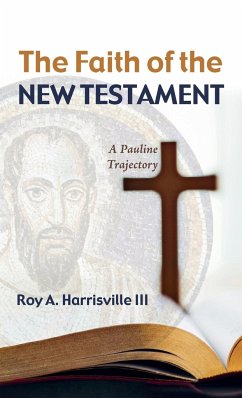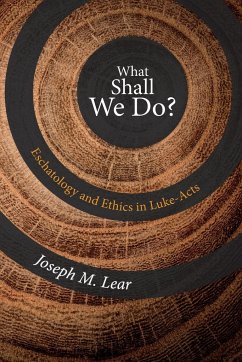
What Shall We Do?
Versandkostenfrei!
Versandfertig in 1-2 Wochen
23,99 €
inkl. MwSt.
Weitere Ausgaben:

PAYBACK Punkte
12 °P sammeln!
Since the 1960s, biblical scholars have noted a relationship between eschatology and ethics in Luke-Acts, but to date there has been no substantive study of the relationship between these themes. What Shall We Do? offers such a study. Lear observes and develops a logic that Luke--Acts presents that begins with eschatological expectation and ends with a particular pattern of life, especially with regard to possessions. He makes the bold claim that Luke has not given up on eschatological expectation. The healing of the cripple (Acts 3), Cornelius's conversion (Acts 10), and the shipwreck narrati...
Since the 1960s, biblical scholars have noted a relationship between eschatology and ethics in Luke-Acts, but to date there has been no substantive study of the relationship between these themes. What Shall We Do? offers such a study. Lear observes and develops a logic that Luke--Acts presents that begins with eschatological expectation and ends with a particular pattern of life, especially with regard to possessions. He makes the bold claim that Luke has not given up on eschatological expectation. The healing of the cripple (Acts 3), Cornelius's conversion (Acts 10), and the shipwreck narrative (Acts 27-28) are figurative stories of coming eschatological salvation. In this context, Lear demonstrates that the sharing of possessions becomes the means by which a new eschatological people is formed. At the beginning of Luke's Gospel, John the Baptist says the true children of Abraham will escape the coming judgment because they share their possessions. The logic of this claim is worked out throughout Luke's two volumes, culminating in barbarian Maltans becoming children of Abraham because they hospitably receive the Apostle Paul.





